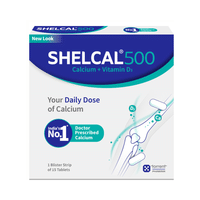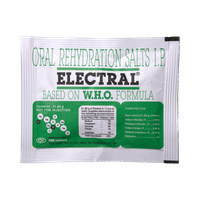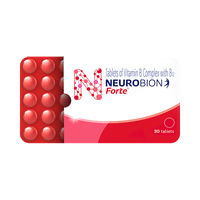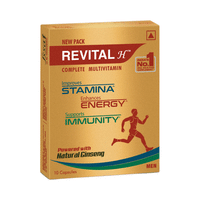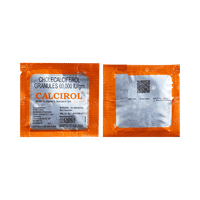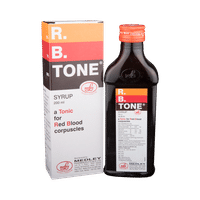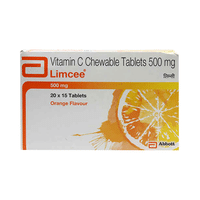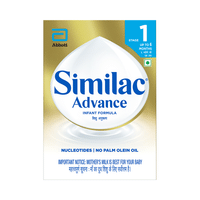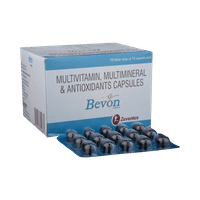Nosramycin H Eye Ointment
Rs.69.30for 1 tube(s) (5 gm Eye Ointment each)
Composition FOR Nosramycin H
Polymyxin B(5000units),Neomycin(3400units),Bacitracin(400units),Hydrocortisone(10mg)food interaction for Nosramycin H
alcohol interaction for Nosramycin H
pregnancy interaction for Nosramycin H
lactation interaction for Nosramycin H
food
alcohol
pregnancy
lactation
No interaction found/established
No interaction found/established
Nosramycin H Eye Ointment may be unsafe to use during pregnancy. Although there are limited studies in humans, animal studies have shown harmful effects on the developing baby. Your doctor will weigh the benefits and any potential risks before prescribing it to you. Please consult your doctor.
CONSULT YOUR DOCTOR
Nosramycin H Eye Ointment is probably safe to use during breastfeeding. Limited human data suggests that the drug does not represent any significant risk to the baby.
SAFE IF PRESCRIBED
SALT INFORMATION FOR Nosramycin H
Polymyxin B(5000units)
Uses
Polymyxin B is used in the treatment of severe bacterial infections. It is used to treat certain types of serious infections which are not responding to other antibiotics.
How it works
Polymyxin B is an antibiotic. It kills bacteria by destroying the bacterial cell membrane.
Common side effects
Burning sensation, Eye irritation
Neomycin(3400units)
Uses
Neomycin is used in the treatment of bacterial infections.
How it works
Neomycin is an antibiotic. It stops bacterial growth by preventing synthesis of essential proteins required by bacteria to carry out vital functions.
Common side effects
Application site reactions (burning, irritation, itching and redness)
Bacitracin(400units)
Uses
Bacitracin is used in the treatment of bacterial skin infections.
How it works
Bacitracin is an antibiotic. It kills bacteria by preventing them from forming their own protective covering (cell wall) which is required for their survival in the human body.
Common side effects
No common side effects seen
Hydrocortisone(10mg)
Uses
Hydrocortisone is used in the treatment of severe allergic reactions, allergic conditions, cancer, skin disorders and eye disorders.
How it works
Hydrocortisone is a steroid which works by blocking the production of certain chemical messengers in the body that cause inflammation (redness and swelling) and allergies.
Common side effects
Increased risk of infection, Weight gain, Insomnia (difficulty in sleeping), Vomiting, Nausea, Depression, High blood pressure, Increased glucose level in blood, Blurred vision, Osteoporosis, Dyspepsia, Posterior subcapsular cataract, Hypothalamic-pituitary-adrenal axis suppression, Hypertrophic cardiomyopathy, Thromboembolism, Tendon rupture
SUBSTITUTES FOR Nosramycin H
No substitutes foundExpert advice FOR Nosramycin H
- Polymyxin B treats serious bacterial infections that have not responded to treatment with other antibiotics.
- It is given by injection or drip (infusion) into a vein usually over 30-60 minutes.
- Finish the prescribed course, even if you start to feel better. Stopping it early may make the infection come back and harder to treat.
- Diarrhea may occur as a side effect. Inform your doctor if ti doesn’t stop or if you find blood in your stools.
- Your doctor may get regular blood tests done to monitor the level of the medicine in your blood.
Frequently asked questions FOR Nosramycin H
Polymyxin B
Q. What is Polymyxin B? What is it used for?
Polymyxin B is an antibiotic that fights bacteria. It is used to treat severe infections of the skin, soft tissues, heart and blood. It is commonly used to treat critically ill patients who are hospitalized.
Q. How is Polymyxin B administered?
Polymyxin B should be administered under the supervision of a trained healthcare professional or a doctor only and should not be self-administered. The dose will depend on the condition you are being treated for and will be decided by your doctor. Follow your doctor’s instructions carefully to get maximum benefit from Polymyxin B.
Q. Is Polymyxin B safe?
Polymyxin B is safe if used in the dose and duration advised by your doctor. Take it exactly as directed and do not skip any dose. Follow your doctor's instructions carefully and let your doctor know if any of the side effects bother you.
Neomycin
Q. What is Neomycin? What is it used for?
Neomycin is an antibiotic used to treat bacterial skin infections. It may also be used to treat infected cuts and wounds. Neomycin stops the bacteria from growing, which helps to resolve the symptoms.
Q. Is Neomycin effective?
Neomycin is effective if used in the dose and duration advised by your doctor. Do not stop taking it even if you see improvement in your condition. If you stop using Neomycin too early, the symptoms may return or worsen.
Q. How to use Neomycin?
Before using Neomycin, clean and dry the affected area. Gently and thoroughly massage it into the skin. Be careful not to get the medication in your eyes or mouth. If Neomycin gets in your eyes accidentally, wash with plenty of water and call your doctor if your eyes are irritated.
Bacitracin
Q. Is Bacitracin a penicillin?
No, Bacitracin is not a penicillin. Though both Bacitracin and penicillin are antibiotics, they have a different mechanism of killing the infection-causing bacteria. Bacitracin works by stopping the multiplication of the bacteria in our body, hence helping in controlling the infection. This medication is applied on minor skin infections which may occur due to small cuts or scrapes. Do not self-medicate and take the medicine exactly as recommended by the doctor, as unnecessary use or overuse of antibiotics can make the bacteria develop resistance, leading to decreased effectiveness.
Q. What type of bacteria does Bacitracin kill?
Bacitracin is an antibiotic that stops the growth of bacteria by inhibiting the formation of bacterial cell wall of various bacterial organisms leading to blockade of their growth. Though the effectiveness of the medication depends upon the sensitivity of the bacteria, Bacitracin is found to be more effective towards gram-positive bacteria such as Staphylococci and Streptococci. The use of Bacitracin also controls the growth of gram-negative organisms such as Gonococci and Meningococci This medicine does not work against virus or fungus infections.
Q. How do you use Bacitracin?
Bacitracin is applied over the injured or wounded area. Clean the affected area properly and let it dry before you apply Bacitracin. Apply to affected area and the area surrounding it, but take care not to spread it to a wide area. The area with the medication may be covered with a clean dressing if required. Remember to follow the doctor’s advice strictly.
Hydrocortisone
Q. How does Hydrocortisone work?
Hydrocortisone works by reducing the inflammation which helps in treating many illnesses caused due to active inflammation. In addition to that, it stops the autoimmune reactions which occur when your body's immune system attacks the body itself and causes damage.
Q. Is Hydrocortisone a steroid?
Yes, Hydrocortisone is a steroid medicine also known as corticosteroids which occur naturally in the body. These corticosteroids help to maintain health and wellbeing. Hydrocortisone increases the levels of corticosteroids in the body by treating various illnesses involving inflammation (redness, tenderness, heat and swelling).
Q. What is Hydrocortisone used for?
Hydrocortisone has anti-inflammatory and immunosuppressant properties. It is used to treat many conditions like allergic conditions, anaphylaxis, asthma, rheumatoid arthritis and inflammatory skin diseases. It also helps to treat autoimmune diseases (these diseases happen when your body’s immune system attacks the body itself and causes damage), and certain eye disorders.













